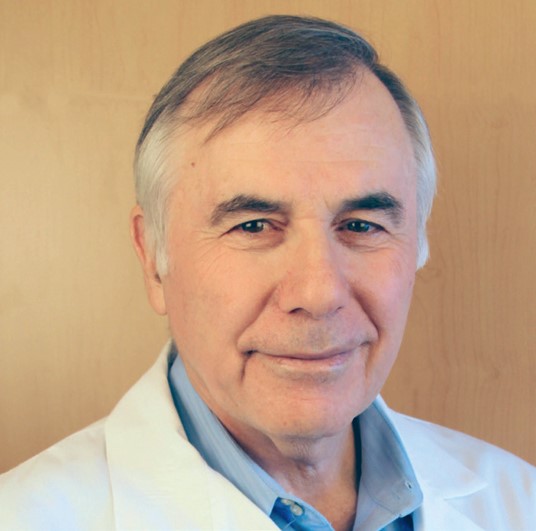Academic Visit by Dr. Uri Galili
Academic Visit by Dr. Uri Galili
 Uri Galili received his PhD from the Department of Cancer Research at the Hebrew University in Jerusalem, and after a post-doctoral fellowship at the Karolinska Institute in Stockholm, he returned to the Department of Hematology in the Hadassah Hospital of the Hebrew University. It was there in 1984 that he and his colleagues published the first articles describing anti-Gal antibody and alpha-gal, the blood group carbohydrate that anti-Gal recognizes. In almost all mammals, alpha-gal is abundant and anti-Gal is absent. But in catarrhine primates—old-world monkeys, apes, and humans—the reverse is true: alpha-gal is absent and anti-Gal is the most abundant antibody in circulation. That discovery has been the linchpin of an extraordinary career that has reached into foundations of medicine, immunology, transplantation biology, and physical anthropology.
Uri Galili received his PhD from the Department of Cancer Research at the Hebrew University in Jerusalem, and after a post-doctoral fellowship at the Karolinska Institute in Stockholm, he returned to the Department of Hematology in the Hadassah Hospital of the Hebrew University. It was there in 1984 that he and his colleagues published the first articles describing anti-Gal antibody and alpha-gal, the blood group carbohydrate that anti-Gal recognizes. In almost all mammals, alpha-gal is abundant and anti-Gal is absent. But in catarrhine primates—old-world monkeys, apes, and humans—the reverse is true: alpha-gal is absent and anti-Gal is the most abundant antibody in circulation. That discovery has been the linchpin of an extraordinary career that has reached into foundations of medicine, immunology, transplantation biology, and physical anthropology.
For 38 years, at the University of California San Francisco (1984–1991), the Hahnemann School of Medicine (1991–1999), Rush University School of Medicine (1999–2004), the University of Massachusetts Medical School (2004–2013), and now in retirement back at Rush as volunteer adjunct professor, Galili has collaborated with colleagues from across the landscape of biomedical research, publishing over 100 articles exploring the anti-Gal antibody’s manifold implications, including especially the innovative therapeutic opportunities it has brought to light. (Uri Galili Curriculum Vitae)
Dr. Galili will be visiting the University of Missouri on September 6 and 7, 2022, during which time he will be giving two lectures and a workshop.
NextGen Precision Health Discovery Series Lecture
Anti-Gal: The life and times of our species' most abundant antibody
When: Tuesday, September 6, from 12:00-1:00 PM
Where: Tom and Linda Atkins Family Seminar Room, Roy Blunt NextGen Precision Health Building
In this lecture, Dr. Galili will introduce natural anti-Gal antibodies and summarize the extraordinary range of their implications in human biology, including the possibility of exploiting them in new types of therapy.
Workshop on therapeutic applications and other implications of anti-Gal
Where: Room 107 Bond Life Sciences Center
When: Tuesday September 6, 2022, from 1:45-4:30 pm
The workshop will be divided roughly into four ~40-minute segments focusing on four topics within Galili’s orbit of research, some chosen by Galili himself and some by campus scientists. A few campus researchers will be scheduled to participate in each segment, but anyone in the campus community is invited to participate in any or all of the segments.
Schedule of segments (last updated 8/26) and other information
Donald M. Nelson Lectureship
How the anti-Gal antibody saved our ancestral primates from extinction
When: Wednesday, September 7, 2022, from 3:30 to 4:30 pm (Refreshments at 3:00 pm)
Where: Lefevre Hall, Room 106
Among mammals, only catarrhine primates (Old World monkeys and apes, including humans) make anti-Gal antibodies, as a consequence of losing the enzyme for synthesis of alpha-gal, the carbohydrate that anti-Gal antibodies recognize. Galili hypothesizes that loss of that enzyme and the consequent synthesis of abundant anti-Gal antibody saved a tiny remnant of our primate ancestors from extinction from a catastrophic outbreak of viral disease 20 to 30 million years ago.
Organizing committee
- George Smith, Division of Biological Sciences (SmithGP@missouri.edu)
- Carol Ward, Department of Pathology and Anatomical Sciences (WardCV@missouri.edu)
- Randy Prather, Division of Animal Sciences (PratherR@missouri.edu)
- Mark Daniels, Department of Molecular Microbiology and Immunology (DanielsMA@missouri.edu)
Sponsors: MU Office of the Provost, NextGen Precision Health Institute, MU School of Medicine, Donald M. Nelson Lectureship
Co-sponsors: Division of Research, Innovation and Impact, Division of Animal Sciences, Department of Molecular Microbiology and Immunology, College of Arts and Science, Department of Anthropology, Department of Pathology and Anatomical Sciences, Department of Biochemical Sciences, Division of Biological Sciences.